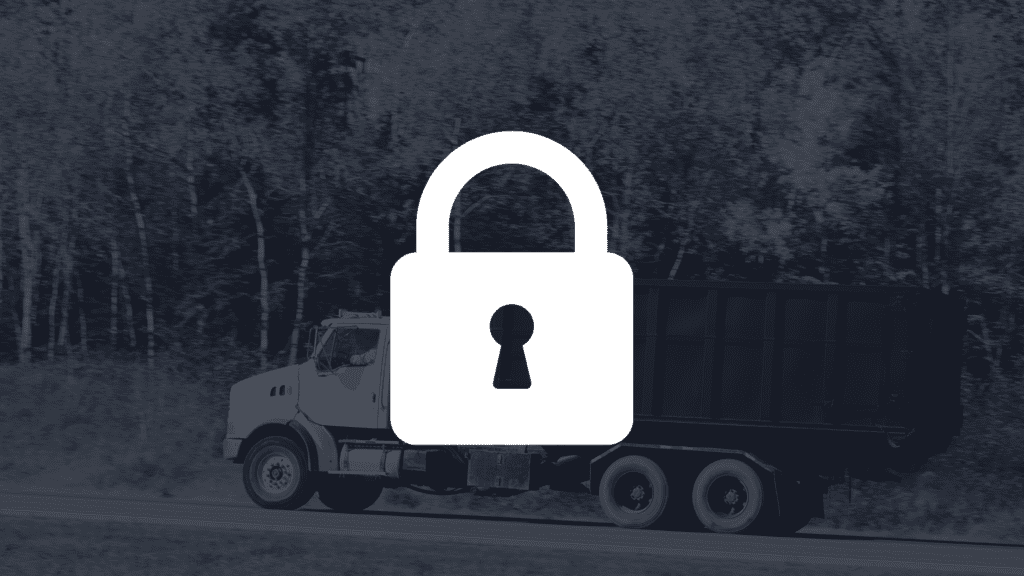Avoiding a Common Scam in the Dumpster Rental Industry
Key Takeaways
- Scammers pose as dumpster rental brokers, using stolen credit cards to book services from legitimate companies while collecting real payments from unsuspecting customers through apps like CashApp.
- Key warning signs include bookings from foreign IP addresses, unusually rushed delivery requests, and payments through non-traditional payment platforms.
- Prevention strategies should include verifying customer identity, requiring proof of residence, and maintaining clear documentation of all transactions.
- If scammed, companies should immediately contact their bank, file reports with authorities, and communicate transparently with affected customers while reviewing their verification processes.
Understanding the Scam
This new scam in the dumpster rental industry can be tricky to spot, but understanding how it works is your first line of defense. Here’s a step-by-step breakdown:
- False Listings: Scammers set up fake ads, usually on popular platforms like Facebook Marketplace. They offer dumpster rentals at slightly lower prices than usual—cheap enough to attract attention but not so low that they raise immediate suspicion.
- Booking and Payment: When a customer, thinking they’ve found a great deal, contacts the scammer, they’re asked to pay through apps like CashApp. These platforms make it hard to recover funds once they’re sent.
- The “Broker”: The scammer then acts as a broker and books a dumpster from a real rental company. They request immediate delivery, often paying with stolen credit card details.
- Delivery and Deception: The dumpster is delivered as requested. The customer believes they have successfully paid for the service, while the rental company thinks they have a legitimate transaction.
- Chargeback: Trouble starts when the owner of the stolen credit card notices the fraudulent charge and reports it. The payment to the dumpster company gets reversed, leaving the company unpaid for the service they provided.
- The Aftermath: Both the customer and the dumpster rental company end up as victims. The customer paid a scammer who can’t be traced, and the company is out of both money and a dumpster.
Why It’s Hard to Catch the Scammer:
- Scammers often operate from abroad, making legal recourse challenging. It appears that the scam commonly originates from the Dominican Republic, but these scams can originate from other countries as well.
- The transaction looks legitimate until the chargeback happens, often too late to catch the scammer.
Understanding this scam’s process helps clarify the red flags that might appear along the way. In the next section, we’ll explore effective strategies to prevent these scams from affecting your business.

Prevention Strategies
Preventing these scams starts with recognizing the warning signs and implementing new booking practices. Here are some proactive steps you can take to protect your business:
Verify the Source of the Booking:
- Online Checks: If your service includes online bookings, check the IP address associated with each reservation. A booking from a foreign country, especially known scam origins like the Dominican Republic, should raise a red flag. Here is a free website you can use to check the origin of an IP address.
- Phone Bookings: Pay attention to the area code when bookings come via phone. An unfamiliar or non-local area code might warrant further verification.
Require Identification:
- Photo ID and Proof of Residence: For same-day or fast turnaround bookings, consider requiring a photo ID and proof of residence. This step can deter scammers who cannot provide legitimate identification. It is possible that scammers can still obtain this information, but having a process like this in place will serve as another line of defense.
- Transparent Communication: Let customers know that these requirements are in place to prevent fraud, which protects both your business and them from potential scams.
Educate Your Customers:
- Safe Payment Methods: Inform your customers about the risks of using quick-payment platforms like CashApp for significant transactions. Encourage them to use more secure methods that offer better protection against fraud.
- Direct Booking: Advise customers to always book directly through your business’s official channels rather than third-party platforms where scam listings can appear.
Trust Your Instincts:
If something feels off about a booking, take a moment to investigate further. Contact the customer for additional verification, or postpone the service until you can confirm the booking’s legitimacy.
Train Your Team:
- Regular Training Sessions: Conduct regular training sessions with your staff to discuss current scams, focusing on how they work and the latest tactics used by scammers. Make these training sessions interactive and encourage questions to ensure understanding.
- Create a Checklist: Develop a checklist of red flags for your team to use when processing bookings. This list might include suspicious payment methods, rush delivery requests, or bookings from unusual locations.
- Empower Your Employees: Encourage your team to speak up if they notice anything suspicious. Empowering them to question anything that seems odd can prevent scams before they succeed.
Community Outreach:
Spread the word in your community about this scam. The more people know about it, the less likely they are to fall for it. Consider working with local news outlets, community boards, or social media groups to share information.
By incorporating these strategies, you can significantly reduce the risk of falling victim to these scams. While it may require a bit more effort and potentially slow down some bookings, the peace of mind and security it brings to your business operations are well worth it. In the following section, we’ll discuss what steps to take if you find that you have fallen prey to a scam despite these precautions.

What to Do If You Are Scammed
Discovering that you’ve been scammed can be incredibly disheartening. It’s important to remember that these scams can happen to anyone and should not reflect on your competence or integrity as a business owner. Here are some steps you can take to address the situation and minimize the impact on your business:
Immediate Actions:
- Contact Your Bank: Inform your bank or payment processor about the fraudulent transaction immediately. They may be able to help you, but success will vary.
- Report the Fraud: Consider filing a report with local law enforcement or reporting to the Federal Trade Commission (FTC). This helps authorities track scam patterns and possibly take action.
Talk to the Customer:
If possible, discuss the situation with the customer who received the dumpster. They are usually victims in this scenario. Approach the conversation with empathy and clarity to explain the situation without assigning blame. In some cases, the customer may be willing to pay you for your service.
Review and Strengthen Your Processes:
- Assess Your Current Practices: Look at how the scammer succeeded and see if there are any loopholes in your booking or payment processes that need tightening.
- Improve Verification Methods: Consider implementing more stringent verification methods for new bookings, especially those that seem rushed or come from new clients.
Educational Outreach
If you are comfortable with it, share your experience with peers in the industry. This not only helps others to stay vigilant but also builds a community approach to preventing scams.
Legal Options
If significant losses are involved, it might be worth consulting with a legal professional to discuss any possible recovery options. This scam usually originates from abroad, so it will be difficult to pursue scammers. The customers would also be difficult to pursue, as scam victims themselves.
While the options for recourse may be limited, especially when dealing with international scammers, you may be able to help others protect themselves from this scam. Remember, the best defense against scams is a proactive approach: educate yourself and your community, remain vigilant, and continuously improve your business practices.
Remember Haulers: Stay Alert
Dealing with this scam can be challenging, but arming yourself with knowledge and proactive prevention strategies can significantly reduce the impact on your business. Remember, it’s not a failure on your part if a scam occurs; these situations can happen to anyone. Stay vigilant, educate your team, and maintain open communication with customers and peers in the industry.
FAQs About Dumpster Rental Scams
What are some common red flags of a dumpster rental scam?
Watch out for unusually low prices, requests for payment through apps like CashApp or Venmo, rushed booking requests, and any booking from an IP address outside your local service area.
How can dumpster rental companies verify the authenticity of a booking?
Companies could require photo ID and proof of residence for urgent bookings and check the IP address and area code associated with each booking for authenticity.
What should I do if I realize I’ve been scammed after renting a dumpster?
Contact your payment processor or bank immediately, reach out to the community, and meet with the customer to see if they would be willing to work out a solution with your business.
Why is it risky to use payment methods like CashApp for large transactions like dumpster rentals?
Payment platforms like CashApp often lack robust protections, making it difficult to retrieve funds once they are sent.
How can community education help prevent these types of scams?
Raising awareness about scam tactics and promoting secure payment methods can significantly reduce the likelihood of successful scams within your community.
Get Started With Docket Now! Click Here to Get a Demo!

